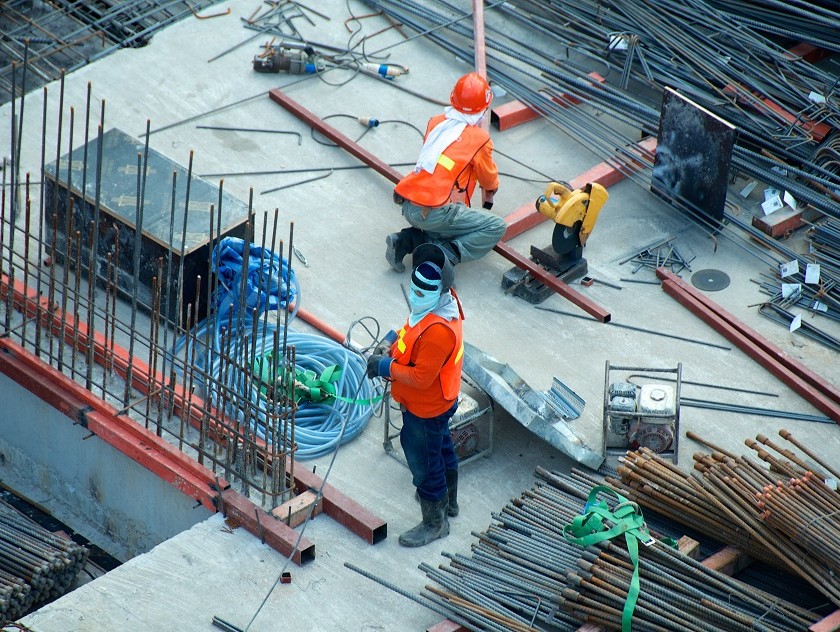Shropshire based CQS provide professional advice and services to contractors and sub-contractors in the construction industry to improve cost certainty, profit margins, productivity and to mitigate risks for business owners.
During the Covid-19 Pandemic the construction industry has been in and out of the headlines and had its fair share of media coverage relating to the impact on the industry, not all of it has been positive.
The industry at large is now attempting to return to work to complete projects that had been suspended or downscaled because of the movement restrictions imposed.
Safe working practices published by the Construction Leadership Council (CLC) are, at the time of writing, on their fourth iteration and the impact of working in this socially distanced way is likely to add time and cost to the completion of projects.
Re-commencement of work after a near two-month interruption with a new set of guidelines or the ‘new normal’ presents contractors, sub-contractors, and suppliers with several challenges.
Tim said: “CQS collaborate with legal professionals, Business rescue specialists and Insolvency Practitioners to achieve the best results for you, whatever the circumstances”.
There are some practical considerations such as availability of labour, plant and materials and there are legal issues to consider such as employment law and new and updated Health & Safety regulations to implement.
Of significant interest, and concern are the commercial aspects of re-starting and ramping up production again. Commercial risks to be aware of are:
Working Capital / Liquidity
Two months of greatly reduced output may have depleted working capital of even the most robustly profitable contracting firms. When production suddenly ramps up again there could be a lack of working capital, putting pressure on Companies ability to meet its creditor demands in the short term.
Subcontractors especially need to be on their guard to ensure cash flows are according to agreed terms to avoid bad debts. Understanding the contract and performing the obligations, allied with strong credit control procedures are paramount to avoiding cash flow problems in the future.
Delays to Completion Dates
Clients and employers are facing the probability that their building completions will be delayed. This will have an impact on investment and/or cost of borrowing and presents the rest of the supply chain with a risk.
Depending on how the building contract is set up between the employer and the principal contractor there may be damages arising from this delay. In most cases subcontract ‘Terms and Conditions’ are ‘stepped down’ from the Main Contract so there is a chance that the Subcontractors have some risk in this respect.
CQS would recommend, as soon as a site re-opens it would be prudent to review what work is left to complete and have a dialogue with the principal contractor and any interfacing trades to agree a sequence and timescale for completion. Once this is established it is imperative that contractual notices are given and that best endeavours are used to mitigate any delay.
Reduced productivity
It is likely there will be less output per shift than before lockdown due to the social distancing measures imposed by the Site Operating Procedures (issued by the CLC[i]). This reduced productivity may give rise to loss and expense which may or may not be recoverable depending on the terms and conditions of the contract.
It is incumbent on all parties to contract and to mitigate each other’s losses and so the subcontractor / supplier is obliged to use their best endeavours to mitigate the effects of these delays.
Extended site opening hours are being encouraged to increase productivity in response to the working restrictions. These opportunities must be explored if Contractors / Subcontractors wish to truly demonstrate that they have used their best endeavours.
Increased Costs
Material manufacturers who ceased production in the face of the lockdown may struggle to meet demand when sites re-open. Stock at builders’ merchants could become more costly as a result which may affect the cost of completing the works for all contractors.
Industry press reports are that the risk of material shortages appears to be low, however anecdotally there is some evidence of plaster and plasterboard prices being significantly inflated where localised shortages are experienced.
If costs increase as a direct result of the effects of the Pandemic and/or government intervention there could be a contractual clause to recover these costs however, the burden of proof is with the party applying for these additional costs and the test is very difficult to prove.
How to mitigate the risks
There are several ways Subcontractors and suppliers can help themselves in this situation:
*Tim Lloyd is principal quantity surveyor at CQS Solutions